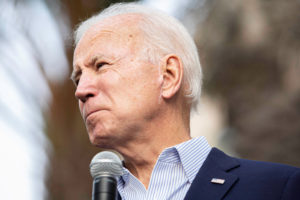The best way to tackle drug prices

President Biden and Democrats in Congress are turning their attention to infrastructure spending, which curiously includes components that have nothing to do with roads and bridges. Among the provisions, House Speaker Nancy Pelosi has suggested a system of price controls on prescription drugs could be included. Senator Bernie Sanders recently unveiled similar legislation.
Lowering the price of pharmaceuticals is a laudable goal. Last year, Americans paid upwards of $350 billion for prescription drugs, a 200 percent jump since the year 2000. But lawmakers would be wise to cure the disease rather than treat the symptoms. The devil is in the details. This plan, which largely mirrors legislation that was passed last year by the House, would cap the domestic prices of prescription drugs to a proportion of what foreign countries pay for the same product. It seems logical on paper, but in practice the strategy will have broad unintended effects. The very patients the policy is intended to assist will get the short end of the stick.
Countries, including France, Britain, and Canada, that will be a part of the indexing group have already fallen for the trap of government-run health care, a system that artificially suppresses drug price levels. If the United States were to peg the domestic price tag to these manipulated foreign markets, revenue would quickly dry up for our drug manufacturers. According to the nonpartisan Congressional Budget Office, companies would lose up to one trillion dollars during the next decade.
It may be difficult to feel sympathy for drug companies. They are often painted as the bad guy. But that lost revenue will directly translate to fewer products brought to market as research and development budgets dwindle, which will rob patients of innovative new treatments and therapies. The Council of Economic Advisers of the last administration estimated 100 fewer medicines would become available over the next decade. It could also weaken our leadership in the drug innovation arena, giving countries like China an upper hand.
Instead of simply trying to mandate lower drug prices through government edict, our lawmakers should focus on the root problem of why prices are so high to begin with. Addressing pharmacy benefit managers would be a good first step. These middlemen of the healthcare world essentially dictate what prescription drugs are covered by health insurance plans and subsequently stocked on pharmacy shelves. The role pharmacy benefit managers play is not inherently bad, but over the years they have learned how to increasingly game the system to profit on the backs of consumers.
Drug manufacturers offer discounts and rebates with their products as an incentive for pharmacy benefit managers to provide access to the consumer market. An honest fee for services rendered is welcome, but when pharmacy benefit managers were given an inch, they took a mile. Instead of passing along at least some of the financial savings already provided by drug companies to patients at the pharmacy counter, they gobble it up. Middlemen collected $166 billion in discounts and rebates in 2018 alone.
Encouraging drug discounts to be applied at the point of sale, rather than intercepted by middlemen, should be a priority of Congress. It would help rein in runaway prescription costs without slowing the spigot of new pharmaceuticals coming to market. Americans enjoy the most cutting edge medical treatments in the world. The system is not perfect, but we should avoid throwing the baby out with the bathwater.
Tom Price, a former secretary of Health and Human Services and a former member of Congress, is a senior healthcare policy fellow at the Job Creators Network.





